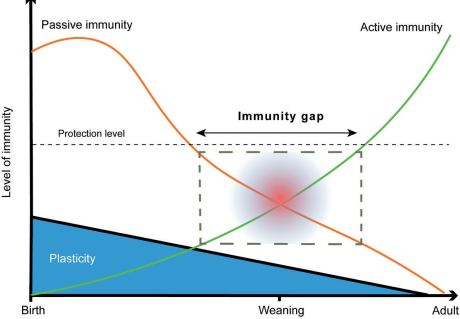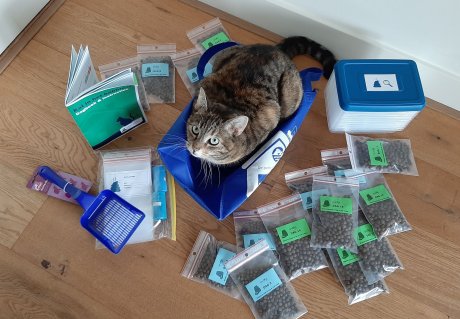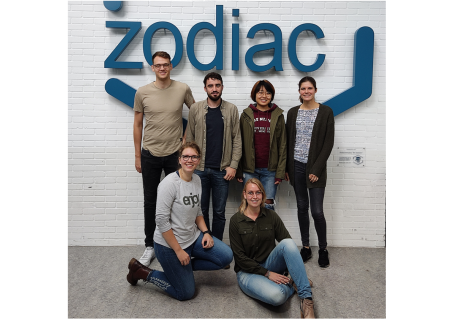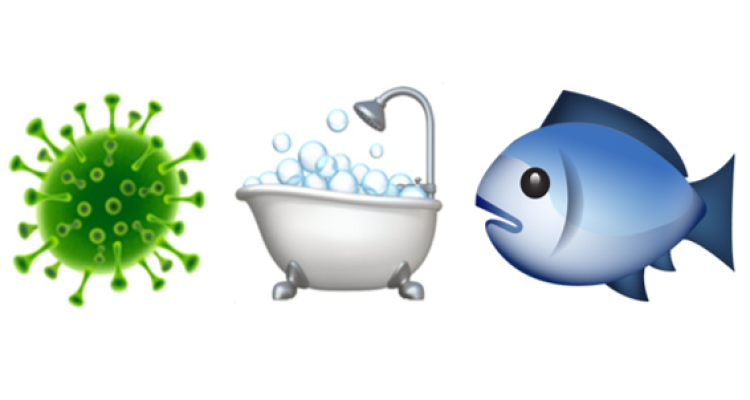
Mucosal vaccination of fish: A whole body approach
WIAS magazine - fall edition 2021
Research Overview
Key words: Aquaculture, mucosal vaccination, immune response & zebrafish
My PhD project aims to develop novel mucosal vaccination strategies for warm water fish species. Vaccination is the most effective way to prevent and possibly eradicate diseases which affect aquaculture fish species. Currently, the most effective vaccines are generally delivered by injection, but this method is labour intensive, causes handling stress and is only viable for certain fish species at the right age. Therefore, mucosal vaccination of fish by immersion or oral administration, targeting the gills, skin, intestines, or olfactory organs is preferred.
Mucosal vaccines have been shown to be effective if they mimic the natural route of infection, for example by crossing mucosal surfaces, and if they elicit strong and lasting immune responses. In order to achieve these requirements, my PhD project aims to develop live-recombinant viral vectors and replicon particle vaccines, and to assess their efficacy as mucosal vaccines for fish (Figure 1). For a whole-body approach, we will use a variety of available transgenic zebrafish lines to select promising vaccine candidates and gain insight into the underlying mechanisms of protection. The use of zebrafish which are transparent and/or have labelled immune cells will allow us to investigate in vivo and in real-time the kinetics of vaccine uptake and immune cell activation (Figure 2). Promising vaccine candidates will further be used to provide proof-of-principle of their efficacy in commercially relevant species, carp, and tilapia.
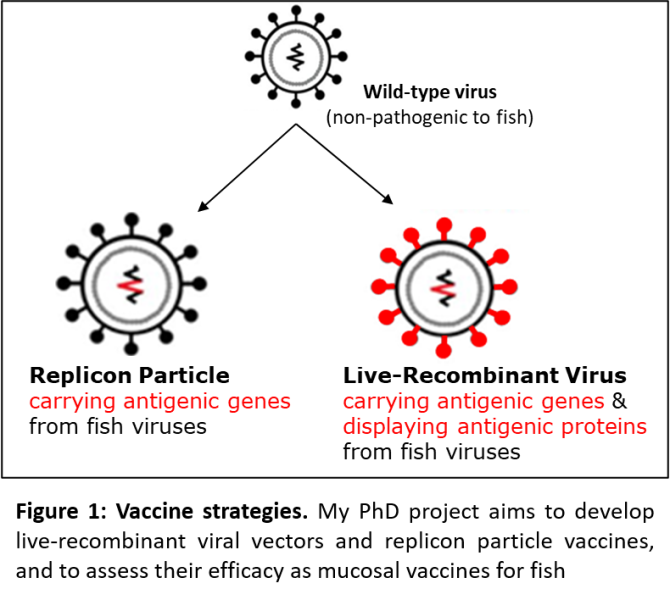
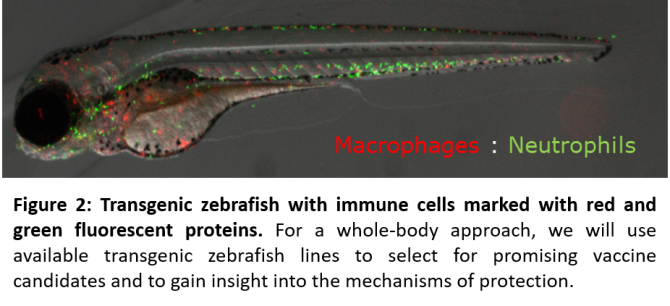
My research connects with various groups within WIAS including but not limited to the: Host microbe interaction group who also work with zebrafish and mucosal immune responses. The Wageningen Bio-veterinary Research Institute which possess knowledge and the tools to measure immune responses to vaccines. The aquaculture and fisheries group which is developing novel methods for measuring fish immune responses, possess knowledge on fish rearing practices and fish vaccination. My PhD is in collaboration with the molecular virology and immunology group at the French national institute of agricultural sciences where I will use microscopy to investigate in vivo the kinetics of vaccine uptake in zebrafish for a whole-body approach.
Altogether my PhD project aims to address knowledge gaps on mucosal immune responses and could provide a universal platform for mucosal vaccination of fish.


